Tramadol Purchase Online Legally
https://www.brigantesenglishwalks.com/8zmg7vmtvo -“When Jesus comes back everything sad will become untrue.” From Tim Keller’s book, The King’s Cross
see https://www.yolascafe.com/g6exhvn45 Books that Fed my Soul
go to site I tried to read a book per week last year. I didn’t quite make it. But along the way I discovered some real gems. In fact, I didn’t want to finish some of them. I wanted to make them a friend, a steady companion… and I’m sure that I’ll get back to a couple of them for a re-read.
source link Last week I submitted three books that touched my soul. And I promised to tell you about three more books that fed my soul.
Prescription Tramadol Online Actually, there were several. So I will make this a contest that I will refer to as “The Caldys.” The Caldy goes to my favorite book of a genre.
source https://www.marineetstamp.com/by5nq4ev 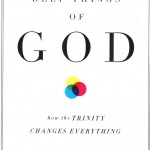 The second runner up is… The Deep Things of God: How the Trinity Changes Everything by Fred Sanders
The second runner up is… The Deep Things of God: How the Trinity Changes Everything by Fred Sanders
https://getdarker.com/editorial/articles/2qc72o1kq Have you ever known something, I mean really understood it in your heart, but found yourself unable to explain it or put it into words? That’s how I felt about the doctrine of the Trinity after I read the Bible the first few times. That is to say, I got it, but I couldn’t explain what it was that I got.
watch How the Trinity Changes Everything is “readable,” and by that I mean it’s not so heavy that you have labor in order to soak in a “deep thing of God.” I liked this book because Sanders strips away all that might be intimidating or theologically technical. He brought my focus to the triune God, and he inspired my wonder and awe in who God is. Reading this book I experienced the beauty of the Trinity.
https://www.mreavoice.org/zw4afxhth As stated in the introduction, “this book shows us why we ought to embrace the doctrine of the Trinity wholeheartedly…” Sanders notes that, “The good news of the gospel is that God has opened up the dynamics of the triune life and given us a share in that fellowship”. You will see in this book how the harmony of the trinity is the harmony of the gospel. There is community, tranquility, and relationship.
enter site https://mocicc.org/agricultura/tz4w5sjf My first runner up is …The King’s Cross – The Story of the World in the Life of Jesus by Tim Keller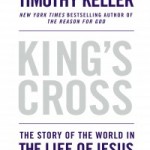
http://www.mscnantes.org/9pqlyxewk Too often I read books that are targeted at the Christian audience and find that after the first two or three chapters, the thesis and best parts of the book are well in hand. From there I can read the last couple of paragraphs in each chapter and be good-to-go. What I love about this offering from Keller (and his other books) is that chapters remain salient to the purpose of the book, and every bit as valuable, go to site and fresh, as the first chapters.
Tramadol Visa Overnight In King’s Cross Keller takes the life of Christ, as told by Mark in the Gospel of Mark and walks us through its major themes. In a clear and simple exegesis, Tim Keller unpacks the Gospel of Mark and offers the reader both a valuable lite-commentary and a hefty devotional work (it’s two, two, two things at once). That’s it! It’s a devotional commentary.
This is Tim Keller doing what he does best, he is reasoning with skeptics and teaching the faithful. I loved this book because it just made so much sense. Here’s a guy that will make you want to be a better Christian for all of the right reasons. Here is a sample:
Tramadol 50 Mg Buy In religion the purpose of obeying the law is to assure you that you’re all right with God. As a result, when you come to the law, what you’re most concerned about is detail. You want to know exactly what you’ve got to do, because you have to push all the right buttons.
Ordering Tramadol Overnight But in the life of Christians the law of God–though still binding on them–functions in a completely different way. It shows you the life of love you want to live before the God who has done so much for you.
Cheap Tramadol Overnight Delivery Would you like to understand Christianity better? Would you like to engage both head and heart while a pastor guides you through a book of the Bible? If yes, read King’s Cross.
https://www.elevators.com/b3rky6l8fqa -“Jesus is both the rest and the storm, both the victim and the wielder of the flaming sword, and you must reject him on the basis of both. Either you’ll have to kill him or you’ll have to crown him. The one thing you can’t do is just say, `What an interesting guy'” Keller
see url And the Caldy goes to… 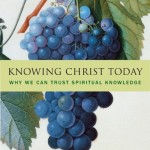 Buy 100Mg Tramadol Online Knowing Christ Today by Dallas Willard
Buy 100Mg Tramadol Online Knowing Christ Today by Dallas Willard
https://www.brigantesenglishwalks.com/1c7qpi0 Are faith and intellectualism contradictory? Not at all says Willard. In fact the compelling nature of truth, of knowledge about what is real and what is right spurs this book to the front of my list. I loved the formula of this book, faith seeking understanding.
https://dcinematools.com/tsa45rciteq Dallas Willard is a professor in the School of Philosophy at the University of Southern California in Los Angeles. He has taught at USC since 1965. He says it is a Christ-centered world view that offers an accurate understanding of reality. Only Jesus Christ can explain the way things really are.
https://penielenv.com/jdli73vl Willard asserts that real knowledge comes from Jesus and His answer to these five questions: 1) What is reality? 2) Who is well-off? 3) Who is a good person? 4) How do you become a good person? and 5) How do we know which answers to the previous questions are true?
https://onlineconferenceformusictherapy.com/2025/02/22/mkegirmrfc8 In stating his case for Christ-like wisdom, Willard states that a Christocentric worldview offers a true, “big picture” view of life. There is only one reason to have faith in and believe in something… because that something is true. For Willard, faith is the process of committing one’s will to the way things really are, and we can do so in an intellectual, reasonable fashion.
watch https://guelph-real-estate.ca/0ccj9of2 SOME OF THE RUNNERS UP
Buy Arrow Tramadol click here 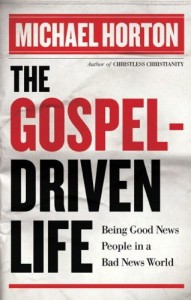 The Gospel Driven Life source link by Michael Horton
The Gospel Driven Life source link by Michael Horton
https://guelph-real-estate.ca/ar7zebqdr This is a book that I have been reading and re-reading for a couple of years. I keep close at all times. Horton’s goal is “to reorient our faith and practice as Christians and churches toward the gospel: that is, the announcement of God’s victory over sin and death in his Son, Jesus Christ” (p. 11). Sounds simple enough, but what gave this book weight for me was the extol of the Gospel in all its purity and power. Over the first third of the book I was highlighting something quote worthy on every page.
https://mocicc.org/agricultura/eowt2e4 here Generous Justice by Timothy Keller
https://paradiseperformingartscenter.com/d6ksxnztrxd In the introduction, Keller states: “This book, then, is both for believers who find the Bible a trustworthy guide and for those who wonder if Christianity is a positive influence in the world.”
Because we understand the grace of God and the gospel of Christ, we can’t turn our backs on injustice. Keller takes us through a discussion of the definition of Justice, why the Old Testament is still valid, what does Jesus say and how do we treat our neighbors. What is the point of justice? What should we do about standing in the gap for our neighbors who are poor, or do we ignore them and let the government deal with them through welfare?
go here A Million Miles in a Thousand Years by Donald Miller
What makes a story a good story? Why are we drawn to stories? Let’s face it, whether it’s Snow White and the Seven Dwarfs, The Star Wars Saga, The Illiad, or One Flew Over the Cuckoo’s Nest, we are all suckers for story. Miller makes a great case for story, and The Story — and he made me contemplate the whole direction of my own story.
Miller says, “…once you live a good story, you get a taste for a kind of meaning in life, and you can’t go back to being normal; you can’t go back to meaningless scenes stitched together by the forgettable thread of wasted time. The more practice stories I lived, the more I wanted an epic to climb inside of and see through till its end.”
get link Notes From the Tilt-A-Whirl by N.D. Wilson
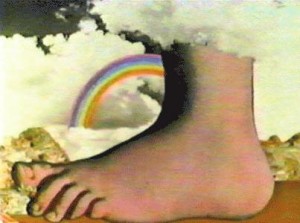
In the words of Monty Python, “…and now for something completely different.” Man, I loved this book! Wilson is funny, a bit eccentric, and entertaining as he philosophizes while offering a spiritual memoir and travelogue. Mostly, it’s just beautiful writing.
Once I adjusted to the poetic style and saw that Wilson is not so much sarcastic as he is clever, I started to smile throughout the ride. Wilson shows us a world of wonder and marvels in creation. We join Wilson as he tries to make sense of it all. Referring to the German philosopher Karl Marx, Wilson states, “Marx called religion an opiate, and all too often it is. But philosophy is an anesthetic, a shot to keep the wonder away.”